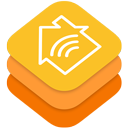Emma strikes again! In this article, she writes about Homekit, Apple’s new framework for connecting devices inside a house, and how it can bring relief to people with disabilities. She also enlightens us about several other smart devices that can bring a lot of ease and comfort in our day to day lives.
For those living with disability or whose health isn’t what it once was when they were younger, daily tasks can become daunting and tedious. However, with recent developments in technology, it seems that these issues have the potential to be relieved. Following recent attempts by Google, tech heavyweight Apple is now working on creating devices, apps, and related technologies that integrate your home, smartphone, Apple watch, and your computer together so that you can monitor your health and take care of your well being with ease.
For those living with disability or whose health isn’t what it once was when they were younger, daily tasks can become daunting and tedious. However, with recent developments in technology, it seems that these issues have the potential to be relieved. Following recent attempts by Google, tech heavyweight Apple is now working on creating devices, apps, and related technologies that integrate your home, smartphone, Apple watch, and your computer together so that you can monitor your health and take care of your well being with ease.
The Homekit, designed by Apple, is a control interface that lets you activate and monitor enabled appliances from your iPhone or iPad anywhere in your house. Because Homekit is programmable, appliances can act based on your specifications, such as cleaning your house with a vacuum robot while you are away, heating up a meal in your smart oven, toggling air conditioning energy rates automatically, or arming and disarming your security system. All of this and more is possible when your home is under your control and for many people this can free them from a wide range of limitations.
The Homekit and Siri might enable you to control your house with voice activated commands but it is hard to think of them as replacements for trained companion animals or caretakers. However, these devices have great potential in assisting caretakers and experts to help you and your loved ones more effectively. Consider how much insurance and convenience a mobile phone provides by simply being able to text the pharmacy, update reminders to caretakers with status or instructions, or contact your doctor while you are in the middle of some other remote activity.

Effectively, any aspect of your well-being and home environment can be analyzed so that you are empowered to make informed decisions and help those in assisted living situations. Moreover, such technologies bring us closer than ever to the reality of robotically assisted living and automated peace of mind.

